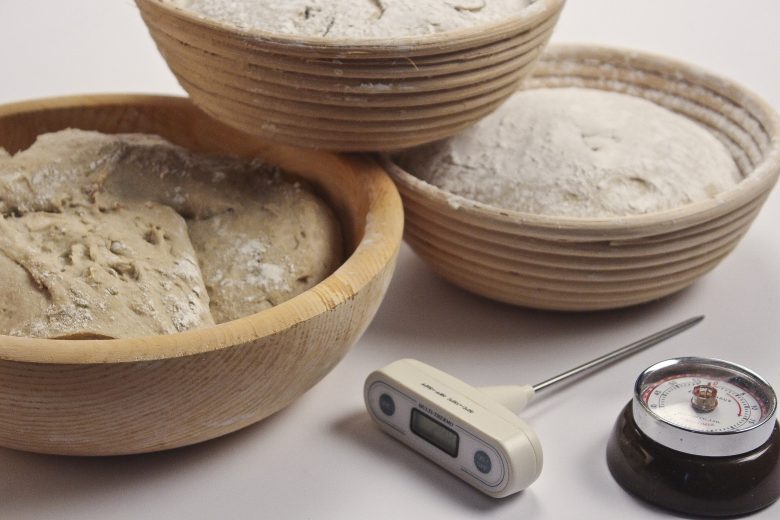Dough Temperature
The dough temperature is essential for the process of swelling and fermentation of the dough. By maintaining the correct dough temperature, you can achieve optimal breads and baked goods that are distinguished in terms of appearance, taste, smell and freshness. The usual temperature for dough is 24-27°C. Higher temperatures lead to faster dough maturation. Temperatures of 24°C should be aimed for, especially for long-term processes, as this enables slow dough development and avoids rapid yeast activity.
The dough temperature is dependent on the following factors:
- Flour
- Kneading process
- Dough processing method
- Temperature of the pre-dough
- The dough hydration, since firmer doughs will heat up more through friction from the dough mixer and from the side of the mixing bowl than softer doughs
1. Flour
The flour to be used should be ideally between the temperature of 18-24°C. Flour that is too cool hinders the absorption ability and thus reduces the overall hydration (TA).
2. Kneading process
The warming from kneading depends on the following factors:
- Kneading system
- Hydration (TA)
- Dough amount
- Flour quality
- Raw ingredients
3. Dough processing method
The decisive factor is how long and at what temperature the fermentation process takes place. During the dough development time at room temperature, the dough heats up by 1-2°C per hour.
Calculating the dough temperature:
Target dough temperature 24°C
= Key value 24°C
Multiply 3 x 24°C 72°C
– Room temperature 26°C
– Flour temperature 25°C
= Bulk water temperature 21°C


